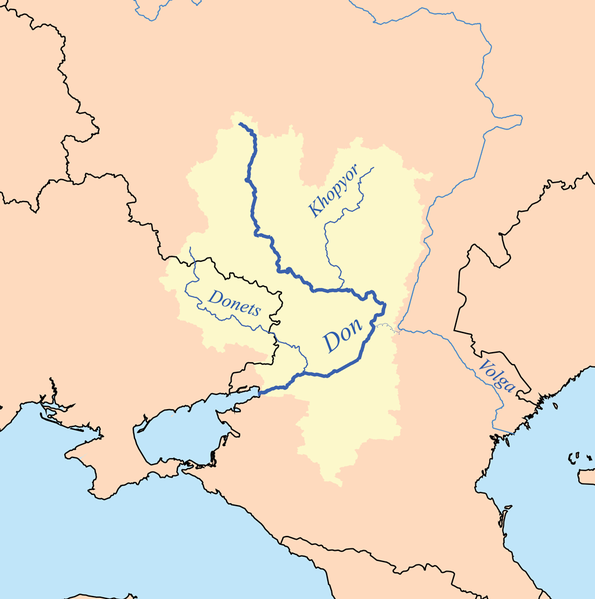truthSeeker
Primećen član
- Poruka
- 862
već sam pričao da reč Srbi potiče od imena boginje Zerbanitu / Serpanitu i da to ima značenje "shining" - "oni koji sijaju"
a znate kako se u jeziku Jermena kaže "sveti"?
սուրբ (surb)

mi imamo podatak da su sirijski prodor na sever koji je daleko dogurao zaustavile Amazonke i imamo niz plemenskih imena oko amazonki koje možemo direktno da mapiramo na (belu) Siriju, Alashiju i oblast jezera Van....oni prodiru na sever preko Kavkaza i izranjaju istočno od Dona... Sarmati se upravo tu pojavljuju ni iz čega...
meni ne pije vodu da Aorsi primene metatezu likvida na svoje ime...pa postanu Rasi / Rašani...
pre će biti da je Aorsi helenizovana verzija....
ako bi helenizovano bilo Aorsi, Siraci i Aorsi bi ustvari bili Siraci i Rasi
Seriani tj. Siraci i Aorsi tj. Alani /Jasi /jaziges) su bili trgovci
Sart ljudi trgovci na dalekom istoku vezani su u sećanju Mongola za polumesec koji im je bio na zastavi...
http://en.wikipedia.org/wiki/Sart
Senekini Seriani su poznati po svili
takođe zemlja ovih trgovaca na dalekom istoku je Serica
ko su kod Kineza ti ljudi?
Yuezhi /Asi / Rouzhi

176 BC Serres / Serians / Ase / Rouzhe proteruju Huni (Xiongnu) iz oblasti Serica i oni preusmeravaju trgovački put na Indiju....otud valjda Sarbani u Pakistanu..
zato istorijski Siraci ne trguju više sa Kinom nego sa Indijom i Babilonom...
a znate kako se u jeziku Jermena kaže "sveti"?
սուրբ (surb)
http://en.wikipedia.org/wiki/SarmatiansThe Sarmatians emerged in the 7th century BC in a region of the steppe to the east of the Don River and south of the Ural Mountains in Eastern Europe. For centuries they lived in relatively peaceful co-existence with their western neighbors the Scythians. Then, in the 3rd century BC, they fought with the Scythians on the Pontic steppe to the north of the Black Sea. The Sarmatians were to dominate these territories over the next five centuries.[6] Pliny the Elder wrote that they ranged from the Vistula River in Poland to the Danube.

mi imamo podatak da su sirijski prodor na sever koji je daleko dogurao zaustavile Amazonke i imamo niz plemenskih imena oko amazonki koje možemo direktno da mapiramo na (belu) Siriju, Alashiju i oblast jezera Van....oni prodiru na sever preko Kavkaza i izranjaju istočno od Dona... Sarmati se upravo tu pojavljuju ni iz čega...
meni ne pije vodu da Aorsi primene metatezu likvida na svoje ime...pa postanu Rasi / Rašani...
pre će biti da je Aorsi helenizovana verzija....
ako bi helenizovano bilo Aorsi, Siraci i Aorsi bi ustvari bili Siraci i Rasi
Seriani tj. Siraci i Aorsi tj. Alani /Jasi /jaziges) su bili trgovci
http://en.wikipedia.org/wiki/SiracesThey and the Aorsi were merchants who traded with goods of Babylonia and India through the Armenians and Medes, with camels. They profited greatly from this, seen in their clothing attributed with much gold.[2]
Sart ljudi trgovci na dalekom istoku vezani su u sećanju Mongola za polumesec koji im je bio na zastavi...
http://en.wikipedia.org/wiki/Sart
Senekini Seriani su poznati po svili
takođe zemlja ovih trgovaca na dalekom istoku je Serica
http://en.wikipedia.org/wiki/SericaThe Seres (Gr. Σῆρες, Lat. Sērēs) were inhabitants of the land Serica, named by the ancient Greek and Roman.[1] I
ko su kod Kineza ti ljudi?
Yuezhi /Asi / Rouzhi
http://en.wikipedia.org/wiki/YuezhiThe Yuezhi or Rouzhi (Chinese: 月氏; pinyin: Yuèzhī) were an ancient Indo-European people[citation needed] often identified with the Tókharoi (Τοχάριοι) of Classical sources.The name is formed from yuè (月) "moon" and shì (氏) "clan". According to the Kangxi Dictionary, it referred to a country beyond China's borders.[7] Since the character 月 can stand for the character ròu (肉) in pictograms, it may not mean "moon" here. The character seems to have derived originally from ròu, "meat", as a character component.[citation needed]
There are numerous theories about the derivation of the name Yuezhi, and none has yet found general acceptance.[8][9] According to Zhang Guang-da, the name Yuezhi is a transliteration of their own name for themselves....
In the middle of the 2nd century BCE, the Yuezhi conquered Bactria, and the Ancient Greek authors inform us that the conquerors of Bactria were the Asii and Tochari tribes. In the Chinese chronicles Bactria then began to be called the country of Daxia, i.e., Tocharistan.[24]
...
Ancient Chinese sources do describe the existence of "white people with long hair" (the Bai people of the Shan Hai Jing) beyond their northwestern border. Very well preserved Tarim mummies with Europoid features (light hair and eyes) and dominated by Haplogroup R1a1a (Y-DNA), today displayed at the Ürümqi Museum and dated to the 3rd century BCE, were found at the ancient oasis on the Silk Road, Niya.[31]
...
Shortly before 176 BCE, led by one of Modu's tribal chiefs, the Xiongnu invaded Yuezhi territory in the Gansu region and achieved a crushing victory.[34] ....
Following Chinese sources, a large part of the Yuezhi people therefore fell under the domination of the Xiongnu, and these may have been the ancestors of the Tocharian speakers attested in the 6th century CE. A very small group of Yuezhi fled south to the territory of the Proto-Tibetan Qiang and came to be known to the Chinese as the "Small Yuezhi". According to the Hanshu, they only numbered around 150 families.
Finally, a large group of the Yuezhi fled from the Tarim Basin towards the Northwest, first settling in the Ili valley, immediately north of the Tian Shan mountains, where they confronted and defeated the Sai (Sakas or Scythians): "The Yuezhi attacked the king of the Sai who moved a considerable distance to the south and the Yuezhi then occupied his lands" (Han Shu 61 4B).

176 BC Serres / Serians / Ase / Rouzhe proteruju Huni (Xiongnu) iz oblasti Serica i oni preusmeravaju trgovački put na Indiju....otud valjda Sarbani u Pakistanu..
zato istorijski Siraci ne trguju više sa Kinom nego sa Indijom i Babilonom...
Poslednja izmena:


















